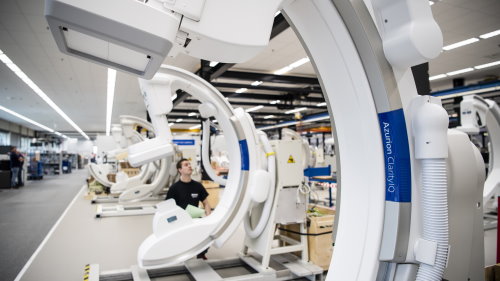
Philips Research hit hard by cuts
About 700-750 jobs will be lost at Philips’ locations in Eindhoven and Best, the company announced on Monday. The medical technology company says it wants to focus on a smaller number of projects that have the best growth potential, and to decentralize R&D activities. As a result, R&D intensity (ratio of R&D expenditure to revenue) will be reduced from 10.5 percent in 2021 to 9 percent in the near future. That’s still above the industry average, Philips notes.
The layoffs are part of a reorganization that will see 6,000 people leave Philips, of whom about 1,100 in the Netherlands. Philips will work with other Brainport companies to ensure a smooth transition for its employees as much as possible, according to a press release. The cuts come on top of the plan announced last October to scrap 4,000 jobs. Those affected primarily office functions; this time about 10 percent of the workforce in research, development and engineering is hit, according to Eindhovens Dagblad.

The Philips Innovation Center in Eindhoven will focus on so-called breakthrough innovations, ie major technological discoveries that could potentially bring the company a billion euros or more in revenue. Teams in Eindhoven will incubate and scale up these innovations for subsequent global deployment. All other R&D, which is 90 percent of the total, will take place at the relevant business units. “In this setup, Philips can bring more focus to its innovation development and make better choices,” reads a company statement.
CEO Roy Jakobs stresses that Philips will remain “a Dutch multinational.” The company’s two largest manufacturing and innovation centers in Drachten and Best, its headquarters in Amsterdam and the Eindhoven innovation center “will shape an important part of our technological future worldwide,” Jakobs says.





